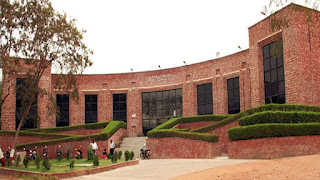As the board results of various central and state boards are being declared, what would soon be hitting us are suicide reports. Letters left by students who committed suicides in Kota have shaken up numerous officials and experts, forcing them to think of preventive steps by addressing the root causes of student suicides.
The middle-class Engineering Obsession:
The national obsession of parents to thrust the engineering stream upon their children is one of the main causes of the consequent depression, anxiety and stress which lead to student suicides. While engineering prospects have gone down severely in the past decade or so, middle class parents are mostly unaware of this fact, as about the various other courses and career options that have come up in the same time frame.
"Pushing students into careers that they are not interested in only results in unhappy adults just going through the motions. I believe that students pursue careers that suit their aptitude and ability. Parents should support children in their choices," said Geeta Pillai, the principal of Pune's Indira National School, speaking on how there are numerous career options available in various fields, unlike in the past when unconventional opportunities were limited.
With half of India's 1.25 billion-strong population under the age of 25, the country has an unrivalled youth demographic. Colleges in India churn out around 1.5 million 'engineers' every year, but there are not enough jobs to support them and a large chunk of the country's engineers take up menial jobs, including those of drivers or peons.
Coaching classes: Time subtracted, stress added
Moreover, coaching classes, which have become almost a mandatory feature in the lives of students act as an added pressure.
"Despite the child getting good marks in science subjects, parents think they can make him/her study more by sending the child to better coaching classes. What they fail to realize is that the child will not only be stressed out, but also battle anxiety issues. If the student is unable to cope with the pressure, he/she will end up with low self-esteem, which is dangerous," said Yajyoti Singh, a child psychologist and a counsellor at Bishop's School in Pune, according to a TOI report.
Web portal and helpline to guide students:
To address this issue of choosing the right courses according to the students' personality and aspirations, the Maharashtra education department, in collaboration with Shyamchi Aai Foundation have come up with a web portal Mahacareermitra.in along with a helpline
"The helpline (8275100001) was started on May 3," said Deepali Divekar, who is a counsellor at Mumbai's state-run Institute of Vocational Guidance and Selection. "We are getting about 100 calls every day and expect the calls to increase manifold," she added
The toll-free helpline number can be availed by students all over the state of Maharashtra to clarify issues on the regular subjects as well as receive guidance on alternative careers and vocational courses
"The website mahacareermitra.in has all the authentic coursewise, fieldwise and areawise data of colleges and courses," said Divekar
In order to make students more aware on where their skills and talents lay, the state has also conducted an aptitude test for all the students of class 10.
Source:- Indiatoday



































